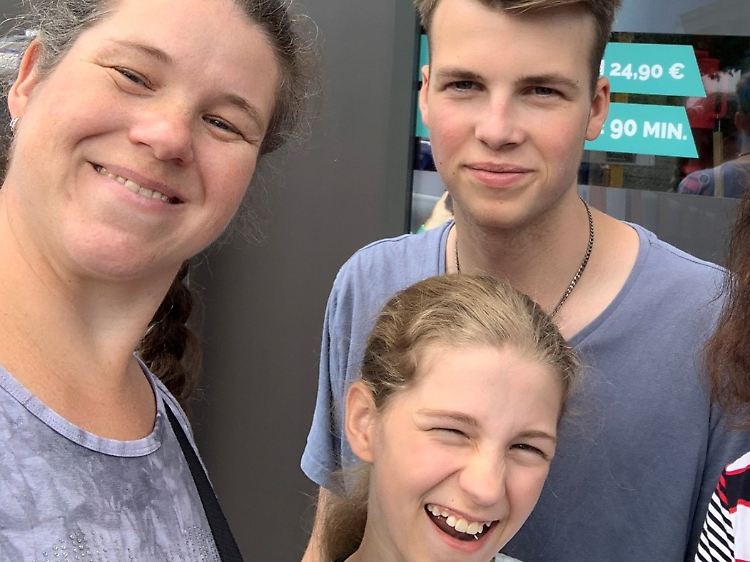What else can we afford?
Single parents (39): There is no money left for leisure and vacation
9/3/2023 8:41 am
Energy and food in particular have become significantly more expensive. Bei ntv.de regularly tell people from all income groups what this means for their everyday life – what is their income, what they spend how much money on and what is left over at the end of the month. Today:
A citizen money recipient
Surname: Jessica Laue
Age: 39
Place of residence: Berlin
Education: Painter and varnisher, retraining as an industrial clerk because of five herniated discs, currently further training as a certified accountant
Recent Activity: Most recently unemployed, I was on sick leave for two years for psychological reasons. Now in September I’m starting a new job: In the office of a small workshop I do the preparatory bookkeeping for 20 hours a week, and I’m continuing my further education at the same time.
Monthly gross income: EUR 1,243.98 citizen’s income from September for me and my two children who still live with me: my eleven-year-old daughter and my 16-year-old son. The oldest is 18 and has already moved out.
Marital status: divorced, three children
Household net income per month: 2067.73 Euro – Citizens’ benefit, maintenance advance and child benefit
Monthly rent for a four-room apartment with 90 square meters: 677.26 euros warm
Monthly costs for heating: 51 euros
How much these have increased during the energy crisis: around 12 euros
Monthly electricity costs: 80 euro
How much these have increased during the energy crisis: Until September I have a fixed price from before the crisis – I’m afraid of how high it will be then.
Additional fixed costs per month:
- A total of 156.16 euros for the public transport social ticket and costs for the car, which I depend on for health reasons, because I cannot walk that far because of five herniated discs, among other things. On average, it costs another 50 euros to fill up, but I regularly drive to Poland, where it is cheaper.
- 122 euros for our cell phones, landline and internet. Unfortunately, even my eleven-year-old daughter needs a cell phone because all school organization has been done via apps since Corona.
- 40 euros for TV and streaming that I share with someone.
- A total of 58.33 euros for liability, household contents and legal protection insurance
- 35 euros old-age provision: 10 euros Riester pension and 25 euros for private life and pension insurance; these are the minimum amounts to receive a grant.
- 20 euros for physiotherapy, medication and rehabilitation sports
- 400 euros debt repayment until December 2024
Additional expenses for my children:
- Sports club 26.67 euros
- 25 euros own contribution for the braces of my 16-year-old son
The bottom line is disposable household income for groceries, hygiene, leisure, clothing, holidays, etc.: 377.31 euros
How much more I spend on groceries today than I did a year ago: At least 100 to 200 euros more, a total of between 320 euros – that’s what I have available – and 600 euros a month if I borrow money, for example for a birthday.
Special expenses: Irregular for health matters such as insoles; I am currently having my 16-year-old son treated by a naturopath, which I have to pay for myself.
How much I spend on vacation: Before Corona and the high inflation, my fixed expenses were lower and I was able to save something monthly for leisure activities and vacations, which is no longer possible.
The details of these most important incomes and expenses are based on self-disclosures and do not claim to be complete.
Exciting, isn’t it? If you would like to take part, please register via email participate[at]ntv.de
Where do I save due to high inflation: Leisure activities and holidays are no longer necessary.
How much is left at the end of the month: nothing
Wishes to politicians: Higher wages, lower taxes on income, cost caps for groceries and everyday needs
